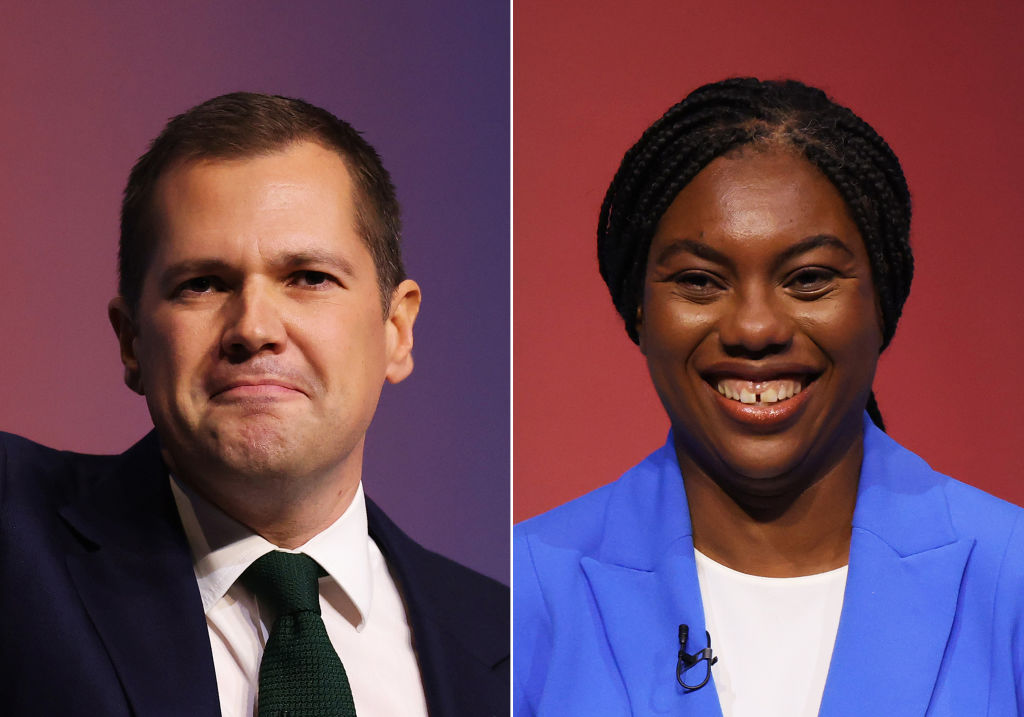British workers want the “right to switch off”
Exclusive polling for the New Statesman found 70 per cent of employees would support the policy.

The Employment Rights Bill that will be introduced to Parliament today won’t contain provisions for a “right to switch off” from work communications outside office hours. Labour has moved the measure to a “next steps” document that outlines the government’s ambitions for future legislation on workers’ rights. But British workers strongly support a right to switch off, according to polling conducted exclusively for the New Statesman by Ipsos Karian and Box, which also shows the troubling extent to which work communications encroach on the private lives of British workers. The poll, which surveyed 1,279 British adults in work, found that 70 per cent of British workers would support a new law that protected their right not to be routinely contacted, or otherwise expected to ...
Why Labour shouldn’t rejoice at Badenoch vs Jenrick
Both Tory leadership candidates create risks as well as opportunities for Keir Starmer.

Is Labour the real winner of the Conservative leadership contest? That is the consensus at Westminster after James Cleverly was eliminated from the contest, leaving a Kemi Badenoch vs Robert Jenrick final. Labour ministers and MPs were delighted by the defeat of the candidate they feared most. “Just the news we needed to cheer us all up!” said one. A minister told me they relished the result on Machiavellian grounds. “I wonder if we’ll have to declare this as a gift,” a third Labour MP quipped. It’s certainly true that Cleverly would have made the most energetic effort to detoxify the Tories’ brand. “The candidate I most feared was whoever would basically apologise for their mistakes and say never again,” a No ...
James Cleverly crashes out as the Tories lurch to the right
Party members will decide between Kemi Badenoch and Robert Jenrick.

Since the start of the seemingly interminable race to replace Rishi Sunak as leader of the Conservative Party, I have argued that the contest is impossible to predict. This might seem like a cop-out – and in a way I suppose it is. But the undercurrents of this long drawn-up process are so complex and volatile, with so few MPs involved in making the decisions, that there have been surprises at every stage. Indeed, while James Cleverly was widely considered to have been the winner of conference, it was a surprise when he rocketed so far ahead in yesterday’s voting round, taking the lead with 39 votes – just one short of the 40 needed to guarantee him a place in the members’ ...
PMQs review: Sunak drags his feet, Starmer lightens up
Today's surprise winner was Kemi Badenoch.

This should have been a slam dunk session for the Conservatives. In the month since parliament rose for the conference recess, the news for Labour has gone from bad to worse. A freebie scandal that just won’t go away. Plummeting poll ratings. Internal rows over Downing Street personnel that culminated this weekend in the departure of Sue Gray. With the added bonus of the outrage sparked by the handover of the Chagos Islands to Mauritius and the defection of Rosie Duffield who quit the Labour party last week to sit as an independent MP. Rishi Sunak – still the official leader of the opposition until 2 November – was spoilt for choice. And he fluffed it. There were attempts to shoehorn in ...
Morgan McSweeney – the permanent insurgent
As No 10 chief of staff, the Irishman faces his greatest challenge yet.

It was the evening of 24 September. Labour’s party conference in Liverpool was nearing its uneasy denouement, but Morgan McSweeney was calm. Cabinet ministers were struck by the serene demeanour of Keir Starmer’s head of political strategy, smartly attired in a blue suit and tie, despite his party’s many problems. McSweeney, some said, had just been waiting for Starmer to turn to him. He soon would. Twelve days later, the Prime Minister appointed McSweeney as his chief of staff, removing the embattled Sue Gray. For weeks, No 10 had been defined by its dysfunction: key roles left unfilled, an advisers’ revolt over pay, and a haphazard media grid and communications strategy. Starmer empowered McSweeney, the aide who had been more central ...
The ascension of James Cleverly
Can the Conservative right rally to defeat his leadership campaign?

You can say one thing for this Conservative leadership contest: it isn’t boring. As expected, Tom Tugendhat is out of the race following this afternoon’s (8 October) vote from Tory MPs. But, in a dramatic reversal of the last voting round in which he and Tugendhat were tied at the bottom, James Cleverly has rocketed ahead. With 39 votes, Cleverly is now the clear frontrunner in terms of MP choices, with Robert Jenrick on 31 and Kemi Badenoch on 30. Cleverly has a couple of things to thank for this sudden advancement. Yesterday’s endorsement from Mel Stride, who fell in the last voting round just before parliament rose for recess, has clearly bolstered him. But Stride only got 16 votes back then. ...
Sue Gray and the dysfunction of Downing Street
She’s just the latest official to fall foul of a broken system.

The departure of Sue Gray was personal, but it was also institutional. As No 10 officials told the Times this morning (8 October), her sacking will not fix “systemic” issues in No 10, across Downing Street and Whitehall. Her departure is symptomatic of a more general failure at the top of the British state, which then spreads down to the entire body politic. More worrying than the fate of any single individual is that this dance of senior adviser dismissal and No 10 reorganisation has been repeated time after time under different prime ministers. Boris Johnson’s chaotic No 10 burned through five chiefs of staff. Twelve people have done the job, or some variation, since Theresa May entered the building in ...
We should be more generous to our politicians
The freebie scandal is a question of transparency not morality. Labour should be careful not to over-react.

The row over the gifts received by senior Labour politicians has been handled badly, damaged the reputation of a new government and now contributed to the resignation of the Prime Minister’s chief of staff, Sue Gray. Up until now, party management has been too slow to respond. But there is a growing risk of a dangerous over-correction. The first instinct of the Government was to dismiss the story and point to the behaviour of their predecessors. It is no doubt galling to be criticised on ethical grounds by those who said nothing about the behaviour of Boris Johnson. A defence based on whataboutery, however, generally only works with one’s most partisan supporters. That is not to say that a useful and ...